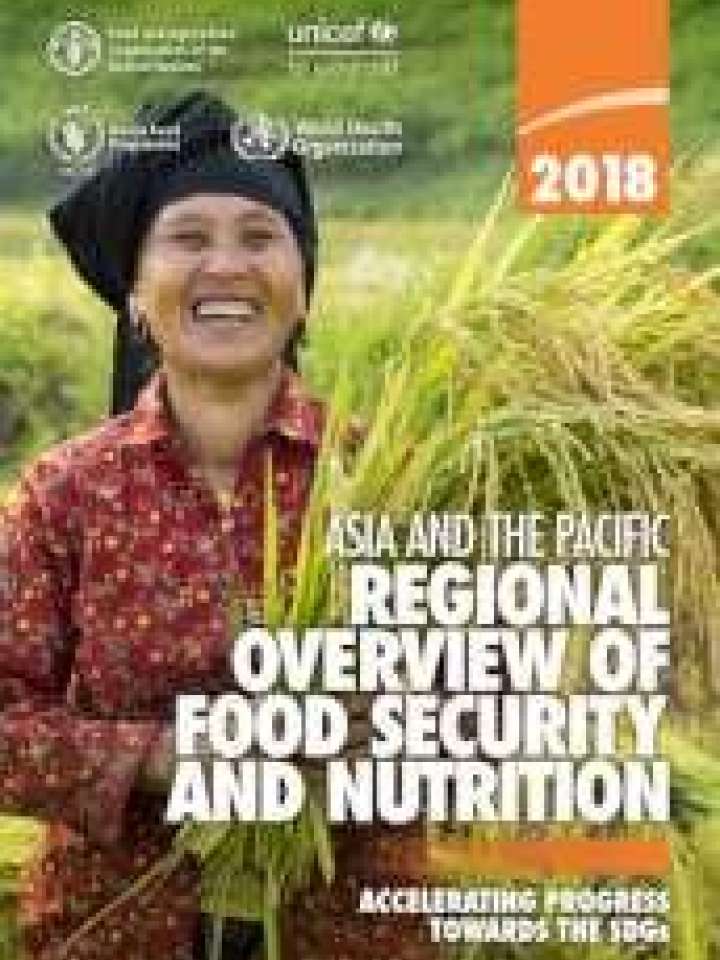Asia and the Pacific regional overview of food security and nutrition - Accelerating progress towards the SDGs
This region of the world is increasingly impacted by climatic shocks. Besides damaging farming infrastructure and properties, such shocks have significant impacts on economic access to food by disrupting jobs and cutting wage incomes, with the impact disproportionately higher on the poor. Studies also show such shocks worsen child malnutrition and health by damaging vital infrastructure supporting health and water systems, sanitation and hygiene. This report synthesizes a range of response measures including early warning systems, insurance and safety nets, and highlights the need for an integrated package of these measures aimed at strengthening the resilience of communities and households.
‘Urban Malnutrition’ is the special theme of this report. Experience across the world has shown that while urbanization promotes social and economic advancement, and improves quality of life, poorly planned and managed urbanization can also have severe negative consequences for food security and nutrition. This report synthesizes understanding of urban food environments, which, due to their heavier reliance on markets, complex logistics and distribution systems, and heterogeneous and mobile populations, require more nuanced and carefully articulated responses. Local city and municipal governments must play a central role in improving urban food systems by providing essential urban infrastructure, improving food systems, and promoting targeted interventions. Food, nutrition and health-related agencies need to join hands with them in strengthening their technical capacity in these areas
Explore further
